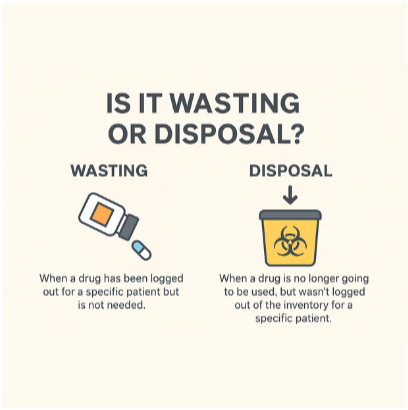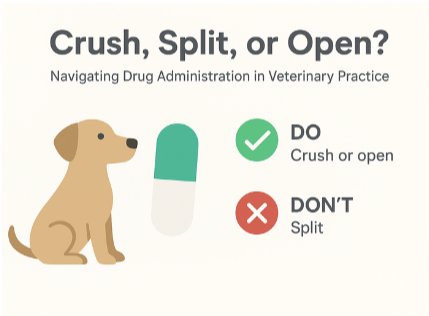Controlled Drug SOPs
This article highlights the importance of having clear, practical Standard Operating Procedures (SOPs) for controlled substances to ensure DEA compliance, guide employees, and protect veterinary practices from costly violations.


Standard Operating Procedures (SOPs) are one of those things that sound good in theory but don't ever seem to get done because there is always something more important. Why spend time writing in a lot of detail how to do something which may never be read when you could just show the people that need to know or do it yourself?
Effectively utilizing SOPs in general is beyond the scope of this article, but I am going to explain why you need at least one SOP for controlled substances and how to make it useful in your practice.
Why Have a Controlled Drug SOP?
Controlled substance regulatory compliance is not something to take lightly. At $10,000+ per violation, a DEA visit that reveals significant issues could mean financial ruin. That said, there is often more than one way to meet the minimum regulatory requirements and the best way depends on the practice.
This means you have flexibility to determine a feasible way to comply, but it also means that you can't expect new employees to know how to ensure DEA compliance simply because they have been working elsewhere in veterinary medicine. That's where your SOP comes in.
Benefits of having an SOP (or SOPs) on controlled substances include:
- Clearly defined processes for compliance that can be provided during a DEA inspection
- Written processes and expectations that can be provided to new employees
- A framework for review of current processes when regulations change
Ensuring Your SOP is Effective
Just having an SOP isn't enough. You need to take a few additional steps to make sure it is effective.
- Determine if one comprehensive SOP or several specific SOPs will work best for your practice
- Make sure that the SOP(s) reflects what is actually done/will be enforced
- Schedule regular reviews to ensure the SOP(s) continues to meet regulatory requirements and reflect actual practices
- Communicate the SOP(s): where to access it, any changes to current processes, etc.
Topics to Include
Your SOP(s) needs to include all the aspects of controlled substance management in your practice. Below are a list of common topics that need to be included (not all inclusive). However, not all of these will apply to every practice.
- Employee screening and training
- Storage and access
- Inventory
- Ordering, receiving, and stocking
- Cycle counts and discrepancy resolution
- Theft and loss investigation and reporting
- In-hospital administration
- Dispensing and prescribing
- Ambulatory administration and dispensing
- Recordkeeping
- Employee off-boarding
- Sale of controlled drugs to other registrants
- Wasting and disposal
Conclusion
In conclusion, write your SOP to explain all processes throughout the lifecycle of a controlled drug while keeping in mind two perspectives.
- If the DEA walks into your hospital tomorrow, they can review the SOP and understand the actual processes that are followed in your practice.
- All employees (even new ones) are clear on controlled substance handling.
If you still aren't sure where to start, consider having me write your controlled drug policies and SOPs for you. I can tailor these specifically to your practice and the state laws that apply, and even train your employees on them once they are complete.
👉 Click here to explore how we can support your SOP development.

Dr. Lauren Forsythe PharmD, MBA, DICVP
Modern Clinics Run on Highfive
Join our pack and get expert advice, clinic updates, and pet wellness tips delivered straight to your inbox.






